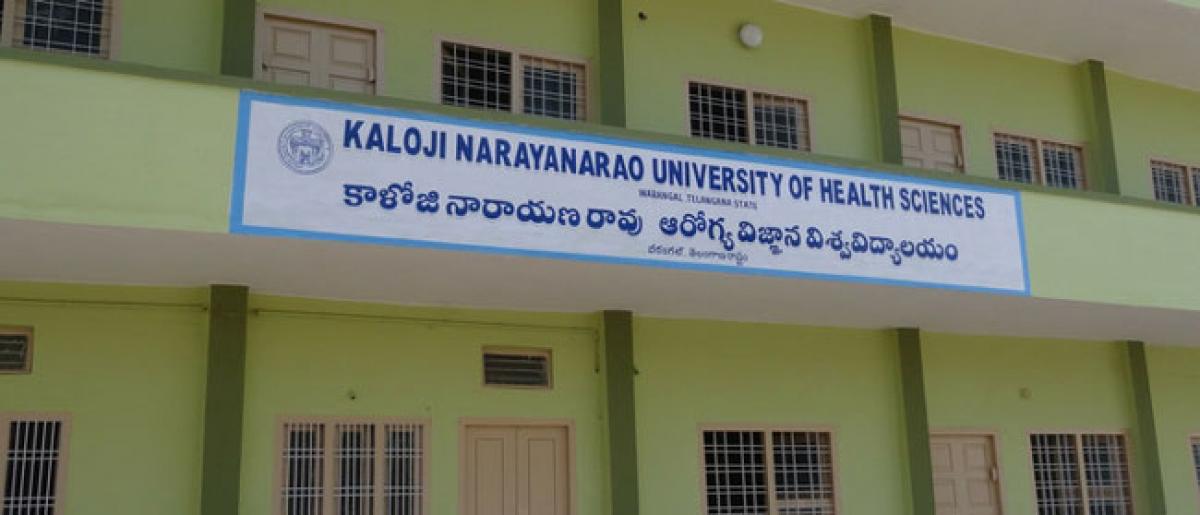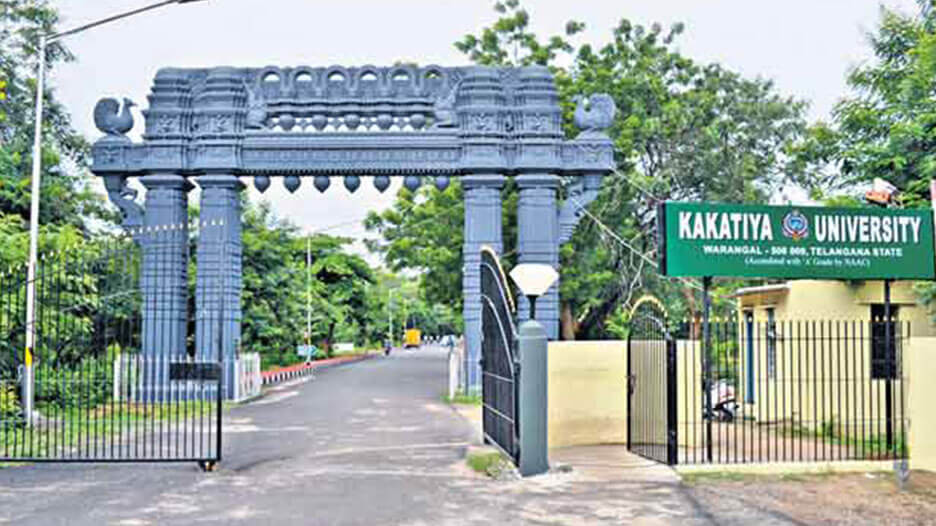Telangana High Court allows the KNRU to fill MBBS admissions
Tue 20 Aug 2019, 11:52:52

The Telangana High Court on Monday allowed the Kaloji Narayana Rao University of Health Sciences to go ahead with counselling for the second phase of MBBS admissions as it found no fault in the filling up of 420 meritorious reserved category (MRC) candidates' seats.
The division bench of Justice P V Sanjay Kumar and Justice P Keshava Rao dismissed the petitions that alleged irregularities in the counselling with respect to MRC seats.
The petitioners had alleged that the University had deviated from the procedure contemplated under Government Orders 114 and 550 and adopted an unusual method which left out reserved candidates.
The bench said there was no merit in the contention of the petitioners that in the second phase open category students who had not joined had to be dealt with in the same manner as in the first phase.
It said there were no grounds to infer that the university had failed to abide by the procedure prescribed in GO 114.
The court examined the data of second phase allotment of local candidates in 27 government and private medical colleges. In none
of the colleges did any reservation category candidate possess a rank higher than the last rank of the OC candidates admitted either in the open category (general) or open category (female) seats.
of the colleges did any reservation category candidate possess a rank higher than the last rank of the OC candidates admitted either in the open category (general) or open category (female) seats.
As per the TS Medical and Dental Colleges Admission Rules, 2017, which were notified in GO 114, if the MRC who is allotted an open category seat in the first phase opts for a reservation category seat in search of a better college, the open category seat vacated by him would have to be allotted to the same category of reserved candidate on merit.
The reservation category that the student opts for would be treated as an open category seat. Thereafter, if the candidate decides to again vacate the seat and opt for an open category seat, the seat vacated by him for the second time would not qualify as a reservation category seat though it was so originally, and it would have to be treated as an open category seat.
The petitioners contended that such seats would have to be allotted to respective reservation category candidates. The court disagreed with this contention.
No Comments For This Post, Be first to write a Comment.
Most viewed from Edu and Jobs
AIMIM News
Latest Urdu News
Most Viewed
May 26, 2020
Do you think Canada-India relations will improve under New PM Mark Carney?
Latest Videos View All
Like Us
Home
About Us
Advertise With Us
All Polls
Epaper Archives
Privacy Policy
Contact Us
Download Etemaad App
© 2025 Etemaad Daily News, All Rights Reserved.






























